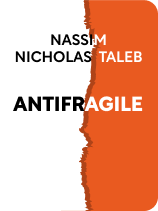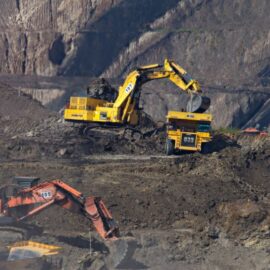

This article is an excerpt from the Shortform book guide to "Antifragile" by Nassim Nicholas Taleb. Shortform has the world's best summaries and analyses of books you should be reading.
Like this article? Sign up for a free trial here .
Is it possible to build an antifragile business? Why are the stock market and big corporations so naturally fragile?
Building an antifragile business is possible, but our economy is currently built on an extremely fragile system—the stock market. Big corporations have no stakes to find better systems when they can just get bailed out by taxpayers.
Read more about what it would take to build an antifragile business.
The Fragility of the Stock Market and Antifragile Business Models
We’ve talked about journalists and talkers transferring fragility onto those who put their ideas into practice. However, there’s no single greater transferer of fragility than the stock market. The U.S. stock market in particular gives all the benefit to corporate executives and managers, while shunting all the harm to the taxpayers. This makes building an antifragile business extremely unlikely.
The problem is that the corporate types have no stakes. This seems counterintuitive, since they work for and represent the companies in question, but we’ve seen time and again how major corporations get bailed out (with taxpayer money) anytime the market takes a serious hit.
As a result, the corporations—and especially their high-ranking executives—become highly antifragile. They benefit directly from random events and shocks to the market. Even if something so significant happens that the company lets an executive go, you can be sure she’ll get a hefty severance package. They get all of the upside and none of the downside.
That’s because the downside falls to the ordinary folk, the ones who don’t have so many options available. The U.S. stock market has cost retirees trillions of dollars, while corporate managers have gotten richer by hundreds of billions over the same time period. The banks are even worse—they’ve lost more money than they’ve ever made, but the cost falls to the taxpayer while the CEOs rake in enormous bonuses.
The reason for all this is that the largest corporations and banks have disproportionate control over the government through their lobbyists. With the state more or less in their pockets, they have free reign to take our money with their products and then take it again when the stock market falls.
Clearly, something needs to change to give bankers and executives some stakes in their own companies to help them build an antifragile business. Back in the 1300s, Catalonia had a tradition of beheading bankers whose banks failed; however, modern people may find that distasteful. Still, in some countries like Brazil, bankers are held personally liable for any losses up to the value of their own assets. If U.S. bankers were held to similar standards, perhaps the market wouldn’t crash so often.

———End of Preview———
Like what you just read? Read the rest of the world's best book summary and analysis of Nassim Nicholas Taleb's "Antifragile" at Shortform .
Here's what you'll find in our full Antifragile summary :
- How to be helped by unforeseen events rather than harmed by them
- Why you shouldn't get too comfortable or you'll miss out on the chance to become stronger
- Why you should keep as many options available to you as possible






